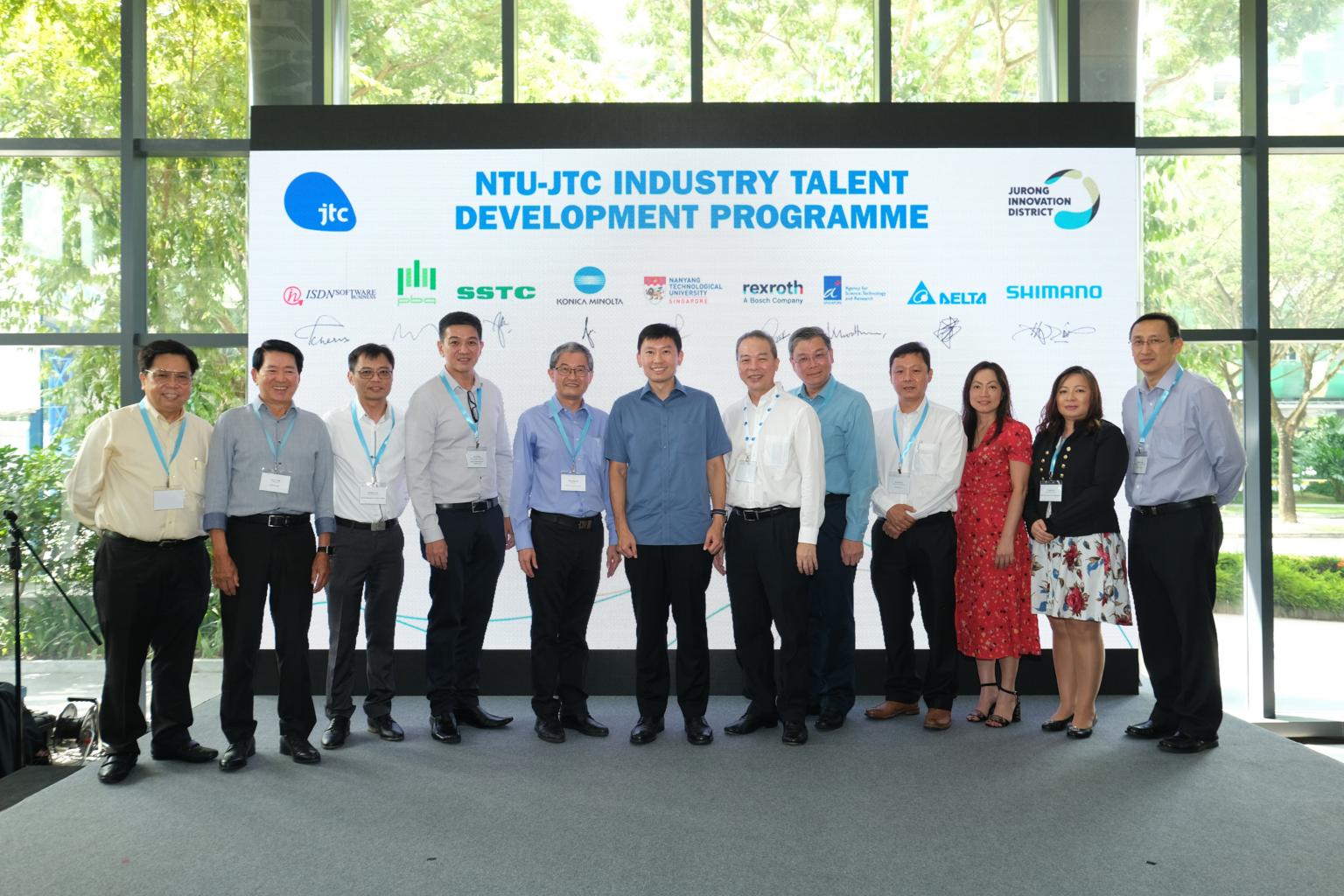JTC, NTU launch new programme to train undergraduates in advanced manufacturing
Sign up now: Get ST's newsletters delivered to your inbox

The NTU-JTC Industry Talent Development Programme will allow more than 200 NTU students to try out internships and projects with eight industry partners.
PHOTO: JTC
SINGAPORE - As Singapore works to become a successful advanced manufacturing hub, it will need to develop its workers for the field, Senior Minister of State for Trade and Industry Chee Hong Tat said on Wednesday (July 17).
To help achieve this, industrial developer JTC and the Nanyang Technological University (NTU) have launched a plan to grow talent in the area.
The NTU-JTC Industry Talent Development Programme will allow more than 200 NTU students to try out internships and projects with eight industry partners such as the Agency for Science, Technology and Research (A*Star) in the next two years.
The programme will be offered to NTU students as part of their curriculum from the academic year starting next month.
At the programme's launch on Wednesday at the JTC Launchpad in the Jurong Innovation District, Mr Chee said the programme will equip undergraduates with advanced manufacturing skills.
In advanced manufacturing, companies use technology and big data to make the manufacturing process less labour intensive and more efficient, among other goals. Examples of new technology include artificial intelligence and 3D printing.
Mr Chee, who announced the programme, said it will help companies build a talent pipeline.
He added: "People remain the most critical element in our efforts to build a successful advanced manufacturing hub.
"Investments in technology and infrastructure must go hand in hand with investments in our workers, so that they are equipped with the right skills to support companies in their growth and transformation."
The manufacturing industry contributed to 22 per cent of Singapore's nominal gross domestic product (GDP) last year. As of March, the sector had 484,500 workers, which made up 13 per cent of the total employment in Singapore, according to official statistics.
Mr Chee said the Government's target is to keep manufacturing at around 20 per cent of the GDP, but with a shift towards advanced manufacturing.
He said: "Singapore is not a low-cost manufacturing base, but we can compete on other dimensions such as quality, value and speed, leveraging our advantages in trust, connectivity and talent."
Another key driver in the push towards advanced manufacturing is with the development of the Jurong Innovation District, said Mr Chee.
The district is envisioned as the industrial park of the future, and its first phase is expected to be completed by around 2022. Mr Chee said the development is on track, with some companies already moving in while other technology providers are in discussions with the JTC to set up operations there.
JTC is the master planner and master developer for the district. Its chief executive officer Ng Lang said the new NTU-JTC programme would also help to build up a pipeline of talent to grow the advanced manufacturing ecosystem in the district and beyond, amid increasing demand for higher skilled manpower to manage new technologies.
Rexroth, a company under German engineering giant Bosch, is one of the companies that has signed up for the programme. It said it is currently "challenging" to attract talent in the advanced manufacturing sector, and such collaborations with schools would help to address the issue in the long run.
Peter Peh, head of department of central functions at Rexroth, said: "We don't have that big a pool of talent in this area for us to tap on... It's only in recent years that the schools start to launch courses related to advanced manufacturing.
"But over the next few years, I would (expect to) see more groups of students emerge in the industry."


